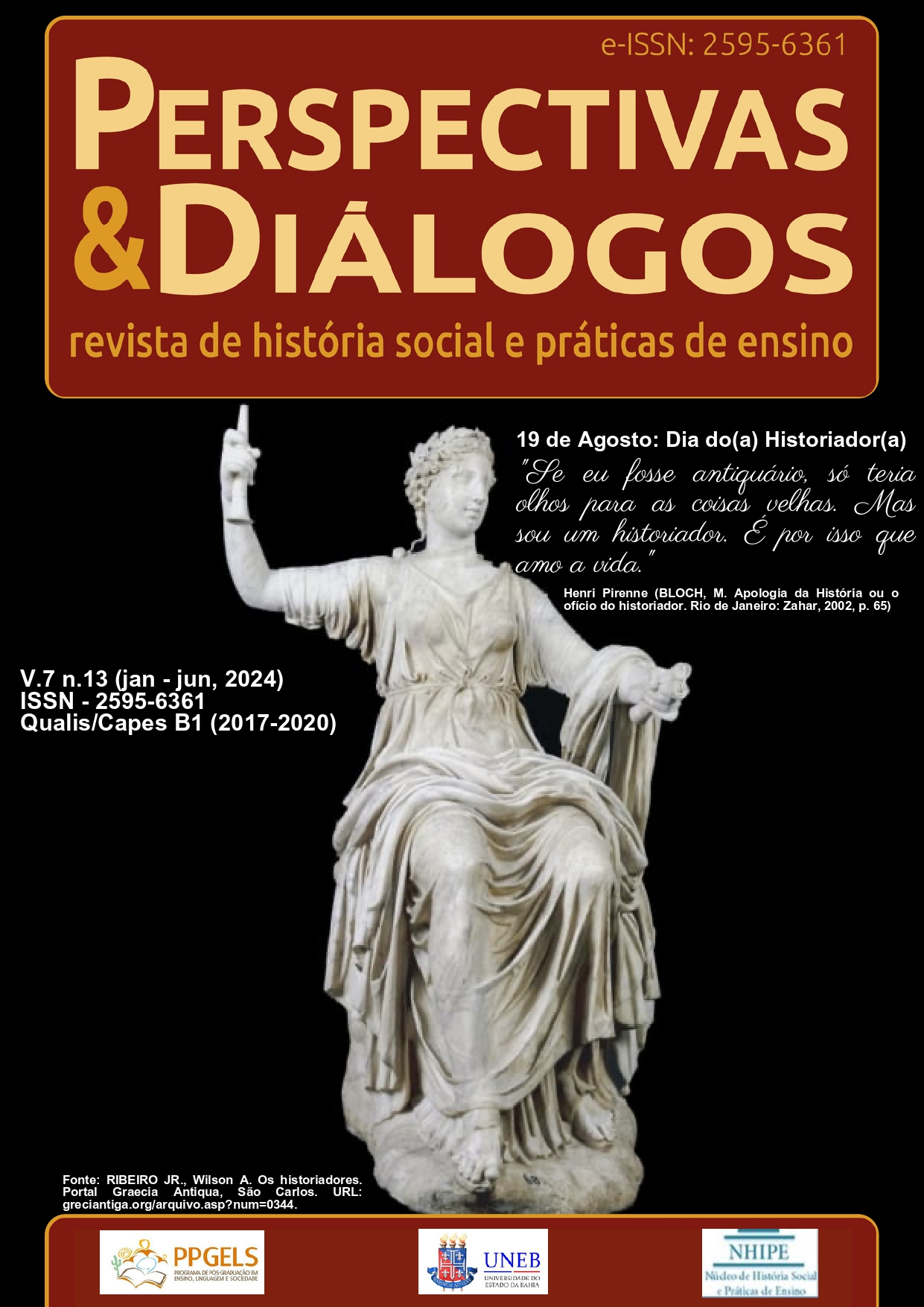Challenging norms: dionysian representations and gender asymmetries in 5th and 4th century Bce Greece
Keywords:
“performative act”, gender, Dionysus, satyrs, maenadsAbstract
This article aims to explore Dionysian representations in Greek iconographies, especially Athenian, from the 5th and 4th centuries BCE. The goal is to highlight within an imagistic corpus the gender asymmetries based on the theory of "performative acts" by the American philosopher Judith Butler, who posits that gender is a social construct continually produced and reproduced through performances. In the iconographic analysis, it is possible to observe some gender nuances such as female masculinity, the cross-dressing of some characters, and the exacerbation of masculinity. From the analysis of the sources, it is possible to perceive a subversion of gender norms, suggesting that gender identity is not an innate essence but a result of cultural norms and discourses constantly reiterated by "performative acts". In conclusion, by integrating archaeological artifacts into the historical narrative, we enrich our understanding of the past and democratize history, giving voice to those not recorded in written sources. The representations of maenads and satyrs, when analyzed through the lens of Butler's gender performativity, offer a critical perspective on gender norms and social tensions in Ancient Greece.
Downloads
References
BREITWEISER, William. Gender Dynamics in Classical Athens. Theses, 778, 2012.
BUTLER, Judith. Os atos performativos e a constituição do gênero: um ensaio sobre fenomenologia e teoria feminista. Caderno de leituras. N. 78, Tradução de Jamille Pinheiro Dias, 2018.
BUTLER, Judith. Problemas de gênero. Feminismo e subversão de identidade. Tradução de Renato Aguiar. Rio de Janeiro: Civilização Brasileira, 2010.
BUTLER, Judith. Corpos que importam: os limites discursivos do “sexo”. São Paulo: Edusp, 2007.
FRONTISI-DUCROUX, Françoise. Du masque au visage. Aspects de l’identité en Grèce ancienne.Paris: Flammarion, 1995.
ISLER-KERÉNYI, Cornelia. Dionysos in Classical Athens: An Understanding through Images. Boston: Brill open, 2015.
KEULS, Eva C.. The Reign of the Phallus: Sexual Politics in Ancient Athens. Berkeley, Calif: University of California Press, 1993.
LESSA, Fábio de Souza. O feminino em Atenas. Rio de Janeiro: Mauad, 2004.
LISSARRAGUE, F. Images du gynécée. In: VEYNE, P. et al. Les mystères du gynécée. Paris: Gallimard, 1998.
MCNALLY, Sheila. The Maenad in Early Greek Art. In: PERADOTTO, J.; SULLIVAN, J.P. (ed.). Women in the Ancient World. The Arethusa Papers, Albany, UNYP, 1984, 107-141.
SURTEES, A. Satyrs as Women and Maenads as Men: Transvestites and Transgression. In: AVRAMIDOU, A.; DEMETRIOU, D. (eds.). Approaching the Ancient Artifact: Representation, Narrative, and Function. A Festschrift in Honor of H. Alan Shapiro. Berlin: De Gruyter, 2014, p. 281-296.
REGIS, Maria Fernanda Brunieri. Mulheres nos sympósia: representações femininas nas cenas de banquete nos vasos áticos (séculos VI ao IV a.C.). Dissertação (mestrado) – Programa de pós-graduação em Arqueologia do Museu de Arqueologia e Etnologia da Universidade de São Paulo. São Paulo, 2009.
USTINOVA, Yulia. Divine ‘mania’: alteration of consciousness in Ancient Greek. Londres: Taylor & Francis, 2018.
VERNANT, Jean-Pierre. La muerte en los ojos: figuras del otro en la antigua Grecia. Barcelona: Gedisa, 2001.
XENOFONTE. Econômico. Trad. Anna Lia Amaral de Almeida Prado. São Paulo: Martins Fontes. 1999.
Downloads
Published
How to Cite
Issue
Section
License
Copyright (c) 2024 Perspectivas e Diálogos: Revista de História Social e Práticas de Ensino

This work is licensed under a Creative Commons Attribution-NonCommercial-NoDerivatives 4.0 International License.


